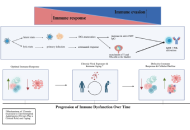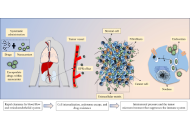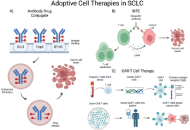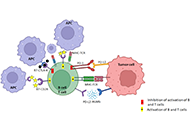
Comprehensive Immunotherapy of Solid Tumors
Guest Editor
Dr. Michela Valeria Rita Starace E-Mail
Department of Medical and Surgical Sciences, Alma Mater Studiorum Università di Bologna, Bologna, Italy
Research Keywords: Immunotherapy, targeted therapy, cutaneous adverse events, adnexal adverse events, solid tumors, hair disorders, nail disorders
About the Special lssue
Cancer persists as one of the most challenging diseases to cure globally. Before the 21st century, primary approaches to cancer treatment included surgical removal, radiotherapy, and chemotherapy. Immunotherapy has significantly altered the treatment outlook for cancers like melanoma, non-small cell lung cancer, renal cell carcinoma, and others. This type of treatment has emphasized that treating tumors should not solely focus on cancer cells but should also consider the entirety of the tumor microenvironment. Indeed, while initially, the immune system can efficiently monitor and identify cancer cells, the immune-editing impact of cancer can lead its cells to transition into an immune escape state. The complexity of tumor immune evasion can be summarized into two main facets: firstly, tumor cells themselves induce immune evasion by lacking crucial molecules like MHC (major histocompatibility complex) or co-stimulatory molecules, reducing antigen immunogenicity, and suppressing antigen presentation genes. Additionally, changes in the body's immune function, including failure to detect early tumor-associated antigens, suppression of immune response by myeloid-derived suppressor cells (MDSC), regulatory T cells (Treg), and tumor-associated macrophages, as well as the impaired function of specialized antigen-presenting cells, also play a role in this process.
Immunotherapy encompasses various treatments for cancer, including immune checkpoint inhibitors, T-cell transfer therapy, monoclonal antibodies, treatment vaccines, and immune system modulators, all aimed at enhancing the body's immune response against cancer cells. These therapies target different aspects of the immune system to bolster its ability to recognize and destroy cancer cells.
This special issue aims to delve into the most recent advancements in immunotherapy for solid tumors, encompassing updates on novel treatment methodologies, adverse events, and the prognostic implications of such therapies.
Keywords: Immunotherapy, immune escape, adverse events, solid tumors, renal cell carcinoma, breast cancer, non-small cell lung cancer
Published Articles



